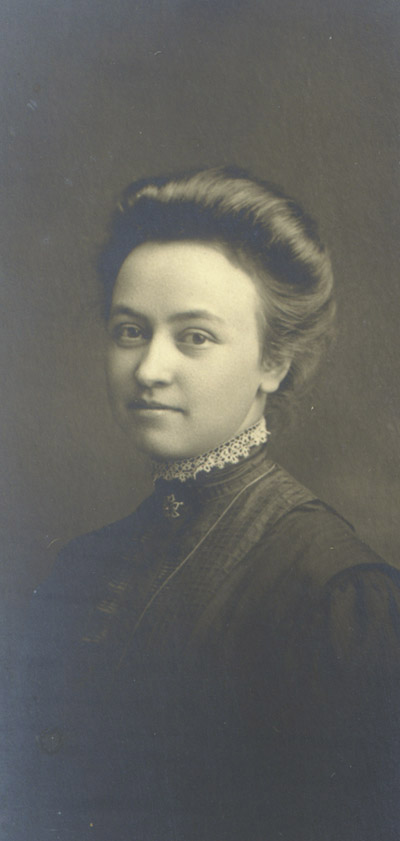
Agathe Wiebe Penner
 March 2006
vol. 61 no. 1
Back to Table of Contents
March 2006
vol. 61 no. 1
Back to Table of Contents
John D. Thiesen is co-director of libraries and archivist at Bethel College.
Among the enormous variety of items for sale online at eBay are Mennonite documents. The Mennonite Library and Archives/Mennonite Church USA Archives-North Newton has purchased several such documents over the past few years, including the one that was the basis for this snapshot of Bethel College in 1912. Bagwell and Associates, an auction house in Fletcher, North Carolina, offered for sale a letter dated 23 March 1912 written by Agathe Wiebe, at Bethel College, to Herman A. Penner, in Beatrice, Nebraska. Agathe was a student at Bethel at the time, and she married Herman on Sept. 5, 1912. How the letter traveled from 1912 to 2005 and from Nebraska to North Carolina is unknown.

Agathe Wiebe Penner
The letter provides an interesting glimpse into student life ninety years ago, and into campus links to the broader political world. Included with the letter was an election ballot used at the event Agathe described in her letter.
Bethel March 23, 1912
My dear Herman:-
Have just had a refreshing little nap after a busy morning in the "gymnasium." This is my last work-day at Bethel and it seems real natural that we are having a blizzard again. We got very little of that snow-storm on the 20th but yesterday afternoon it started in and is just keeping it up all day. Do believe I will be snowbound somewhere, or maybe I'll get that promised sleighride!-
I do not know yet when Prof. Langenwalter is coming home, rather think I will go with him. He says he is going either on the coming Friday in the evening so as to be there for the 31st; or on the following Monday evening ready for work on Tuesday eve. the 2nd of April. He says it all depends on the wishes of our C. E. if we want him for a Sunday it will have to be the one before Easter since he wants to be home for Easter. So my coming home if I go with Prof. Langenwalter depends on the answer he will receive from the C. E. at home.
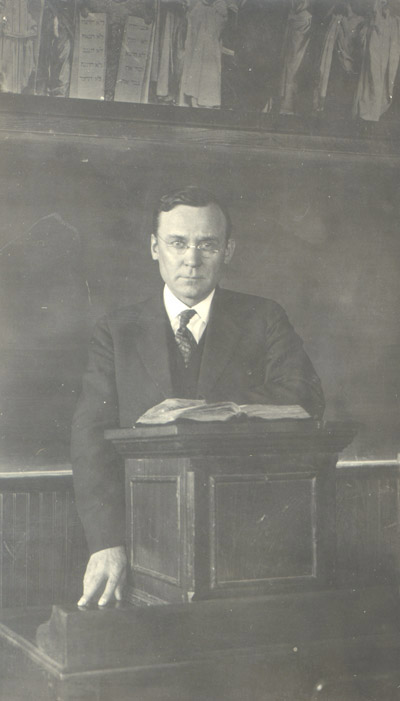
J. H. Langenwalter, professor of Bible
Your letter and the prints arrived here safely through all the storms & floods, also those snow-pictures, they are so beautiful, Elizabeth thinks so much of her card. Am glad to hear that you approve of my coming home plans. - Although Papa never expressed a wish of my staying home last fall I sometimes felt he would rather have me stay - still a longing for a little more education and the strange development which made it possible for me to go caused me to decide for College; and when I look back I feel the time has been well spent and I feel I have gained a wider outlook and broader & deeper view of Life, of which I hope to make the best possible use of in the great & wonderful chapter of Life before us. Even if I often felt I could not accomplish nearly what others could, I believe even these days have a blessing for us by giving us an impulse to be more faithful and true with those gifts which we have received so that God may entrust us with greater & larger gifts.-
That plan looks just fine to me, that closet arrangement is such an improvement am getting so anxious to talk to you about it all.
Must tell you about the social we had last night at the College. It was given for all students and Professors, arranged for by the social com. of our "Students Christian Union." A splendid program was arranged for and light refreshments consisting of coffee & wafers were served at the close. To assist in arranging the couples for lunch questions & answers were passed the questions to the girls, as it is leap year, - and we had to find our answer. We read our question and the boys read their answers and often comical answers were received before the right one was found. My question was: To what country does Alaska belong? And my partner was a Mr. Sam Krehbiel who I had never met before. He was on his way home to Moundridge from Manhattan where he had attended school, and stopped off at Bethel to visit with his sister. He seemed to be a very nice young man and so galant, we were given each a plate with the cookies & a cup of coffee and must say that he was quite clever in carrying both cups until we reached our seat. Now for the program it was opened by several songs by eight boys, then a "performance by the faculty" who were represented by the different students who dressed & acted as nearly like them, the girls having borrowed the costumes of their respective teachers. First they gave a morning in chapel and then a faculty meeting, calling one of the boys on "the carpet" for snowballing. Then an octette arranged by Eliz. Goertz & myself; an instrumental Duett, Music by Milo Neuenschwander, and then an imitation of a rally day before the Election of the President. The band rendered a few selections then a number of stump-speeches were given representing and nominating the following men: Taft, Roosevelt, LaFollette, Wilson, Clark & Debs, some fine speeches were given and small ballots had been printed and all were given a chance to vote, also a few speeches on woman suffrage were given and Taft, and against woman suffrage received the majority of votes. I thought it was quite an idea to get our Mennonite boys interested in the elections of the President, and girls too for that matter, I never cared very much I think it was probably because papa never takes very active part.
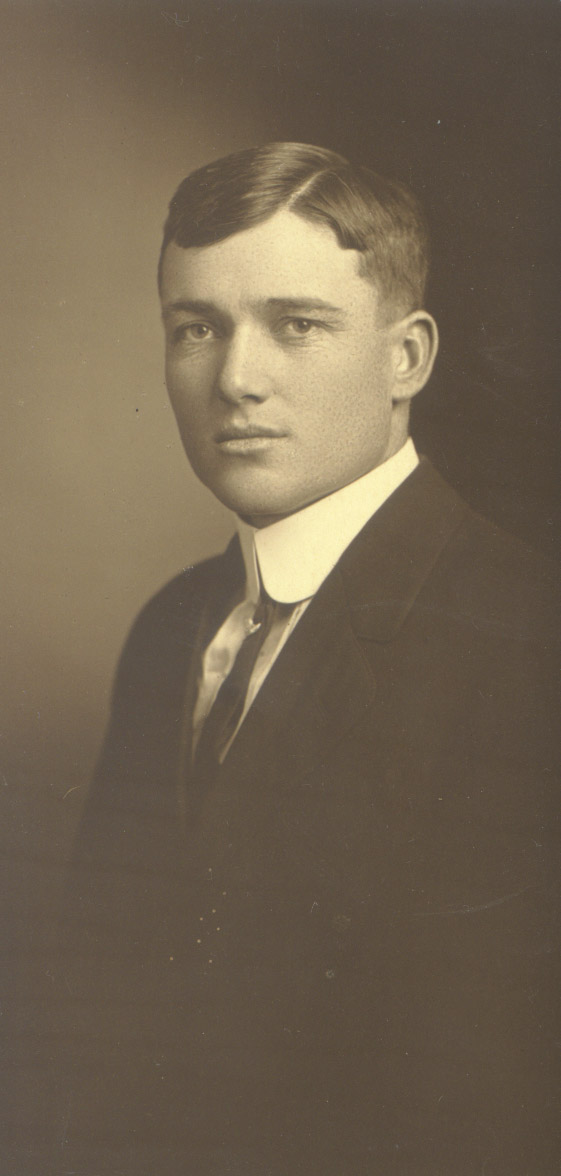
Sam Krehbiel
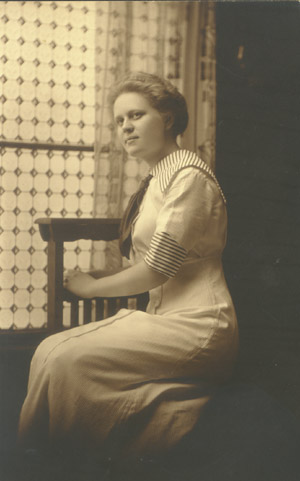
Elizabeth Goertz
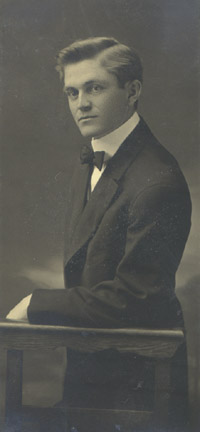
Milo Neuenschwander
Now isn't this a rather strange program for a social. I would rather call it a getting together of the students & Professors.
Last Thursday evening instead of going over for chorus-practice I had Mrs. Hirschler & little Vernelle here; she was so interested in the plans said she could spend a whole day with a plan-book.
Well you will be all tired reading this scribbling by this time and I must see if we have any gas so we can do a little ironing.
Nearly all the snow had thawed away by Wed. but now everything is covered with a "white blanket," as you expressed it so poetically, and it is still snowing fast.
Best regards to your folk and best wishes and Love from
Your Agathe.
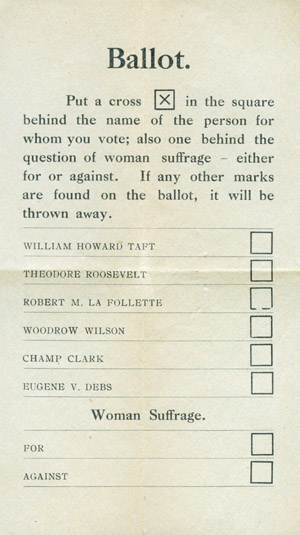
The Bethel ballot (III.1.A.35.b folder 81)
The 1912 election was dominated by various representatives of the Progressive movement. William Howard Taft, a Republican, was the incumbent president in 1912. Theodore Roosevelt had been president until 1909, and came back to challenge Taft for the Republican nomination in 1912. Taft won the nomination in June and Roosevelt left to become the candidate of a new Progressive Party. Robert LaFollette, US senator from Wisconsin, also ran for the Republican nomination as a "Progressive Republican," but his campaign fell apart after an unfavorable campaign rally in February 1912.
Champ Clark (originally James Beauchamp Clark and originally from Kentucky) was Speaker of the US House of Representatives and a Congressman from Missouri. He had a reputation as a fiery orator and was the front runner for the Democratic nomination all the way into the convention. Woodrow Wilson, governor of New Jersey, challenged him from the Progressive perspective. Wilson won only after numerous ballots at the convention.
Eugene Debs, the Socialist candidate, had already run for president three times. At this time, over 1000 Socialists held office in 33 states and 160 cities.
In the 1912 election, Wilson won easily with 42% of the national vote. He carried both Kansas and Nebraska, where Agathe Wiebe and Herman Penner lived. Roosevelt was second; Taft, the incumbent, was third. Debs won 6% of the popular vote. (1)
The constitutional amendment giving women the right to vote in national elections was still 8 years in the future in 1912. In many states, women had the right to vote in local and state elections. Kansas could boast the first woman mayor in the country: in 1887 Susanna Salter had been elected mayor of the town of Argonia.
The Bethel vote turned out rather differently than the national vote. As we will see below, Roosevelt won a majority, with Wilson below a third of the votes, and the rest of the candidates far behind. The Bethel voters decisively rejected women's suffrage by a nearly 2/3 vote.
The Bethel College "social" of March 22, 1912, was not well reported in the Bethel College press. There was no student newspaper at the time, nor was the a yearbook that year. The English-language Bethel College Monthly said only
On Friday evening, March 22, the students and the Faculty met in a social gathering. Music, speeches, and refreshments helped to make the occasion a pleasant one. (2)
The German-language Monatsblätter said a bit more.
In the evening of the 22nd of March the faculty and students passed a quite pleasant evening with each other.
The faculty were offered an opportunity to see themselves through student eyes. And why shouldn't that be interesting, as long as the relationship between faculty and students is and remains proper. The faculty must have found it highly interesting what a little information and lively imagination could carry off, and for the students it was a treat to transfer themselves a few years into the future.
The Fatherland and its questions were also not forgotten. Speeches were given for: LaFollette, Clark, Taft, Debs, Roosevelt, and Wilson. The group was also given the chance to vote for these candidates. Roosevelt received by far the most votes.
On the question of whether women should have the right to vote or not, the group decided, after hearing two speeches, that the woman finds her sphere at home and thus should not mix in ballot box politics.
Pleasant music and conversation as well as light refreshments contributed their part to decorate the evening. (3)
The Newton Evening Kansan-Republican gave by far the most thorough report.
Bethel College Notes
The students and the faculty were given a most delightful reception in the college chapel Friday evening. The affair was planned by the social committee of the Christian Students' Union, and it was well managed. Everything ran off without a hitch, and the whole program was entertaining to a very high degree. An octet of male voices opened the program with several rousing students songs. Then J. M. Regier, acting as president of the evening, announced that the faculty would give a performance. "The Faculty" then proceeded to arrive on the stage, as if for the morning devotion. Prof. Langenwalter was represented by P. F. Schroeder; Prof. D. H. Richert and his smiles and giggles were portrayed by M. M. Lehman; then came Miss Wirkler and Miss Martin, represented by Susanne Goertz and Helen Haury, respectively; Sara Balzer fell naturally into the role of calm and dignified Miss Byler; J. S. Schultz passed readily for Prof. Doell, while A. J. Regier acted Prof. Stump most creditably. Ernest Penner made a perfect picture of Prof. Hirschler, while John Friesen and H. D. Voth could not be mistaken for anyone but Profs. Wedel and P. H. Richert. Miss Hoisington and Miss Mueller came up together in the persons of Jessie Duff and Edith Kaegi. Margaret Klaassen represented Miss Hunzicker. Max Schmidt felt perfectly at home as Prof. Haury, while Isaac Dick masterfully imitated Pres. Kliewer. "Prexy" led the exercises, made an announcement in Prof. Kliewer's characteristic way. "Prof. Langenwalter" also had an announcement to make, stating that the Freshman Bible course would hereafter be a two-hour instead of a one-hour course. "Prof. Haury" announced an arrival of text books, notice of which he had placed on the bulletin board so conspicuously that even those who run may read. As closing song "America" was sung. Then the "faculty" went into session. A number of petitions were read and acted upon, showing to the students how foolish some petitions look when they come to the faculty. "Prof. Kliewer" was recognized in every sentence spoken by the president of the faculty. The deliberate judgment, the moderation of all rash action was portrayed very effectively. A resolution was passed on the recommendation of "Miss Mueller" to convert the dormitory wash-kitchen into a gymnasium for the girls. The dean of men reported that the boys were gentlemen in every respect, that they could pass as models in any school, no disorder and no roughnecks could he find. There was only one fellow, P. J. Ratzlaff, who insisted on washing girls' faces in the snow. Ratzlaff was brought "on the carpet" and was given a hearing. He was informed that he would be dismissed from school, if he did not mend his ways. Ratzlaff promised once more to be good, and there being not other business the faculty adjourned. It was a very clever representation of the faculty from first to last, every character was exceptionally well taken and to all appearances the faculty enjoyed "seeing themselves as others see them," about as much as anyone in the audience.
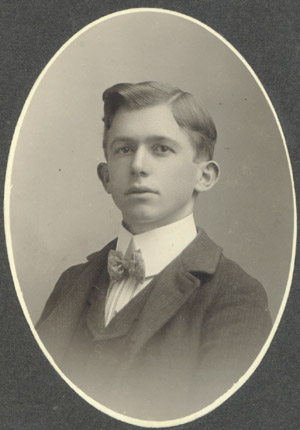
John M. Regier
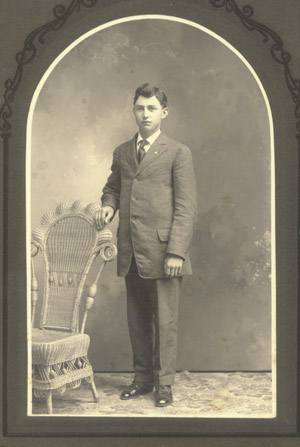
Peter F. Schroeder, played J. H. Langenwalter
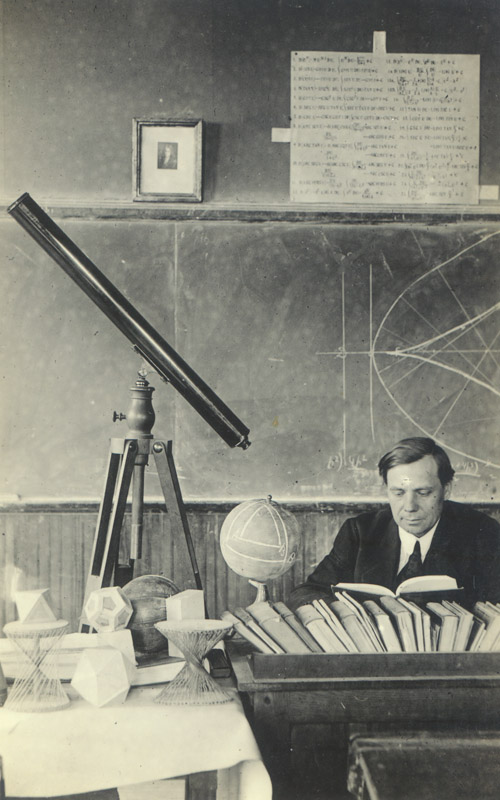
David H. Richert, professor of mathematics and astronomy
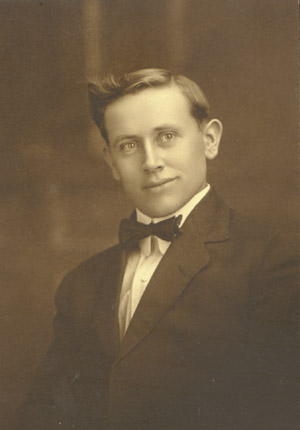
Menno M. Lehmann, played David H. Richert
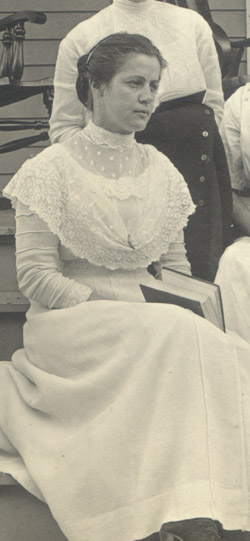
Elisabeth Wirkler, fine arts instructor
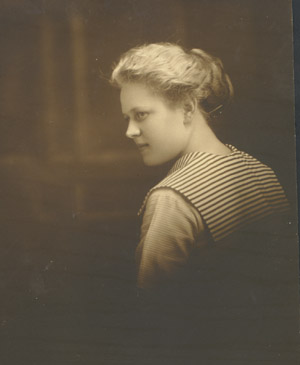
Suzanne Goertz, played Elisabeth Wirkler
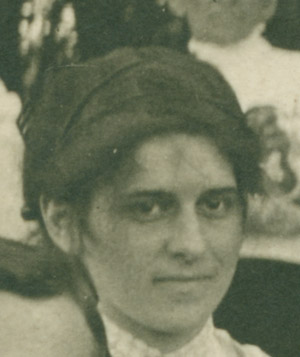
Alice Martin, instructor of elocution and physical culture
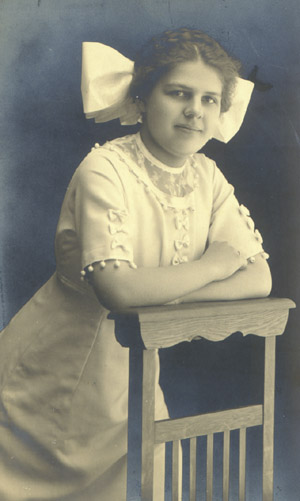
Helen Haury, played Alice Martin
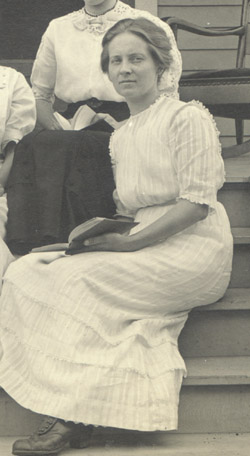
Elsie Byler, professor of English
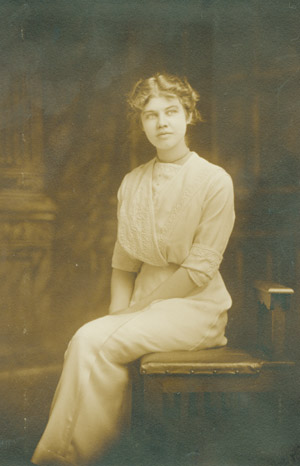
Sara Balzer, played Elsie Byler
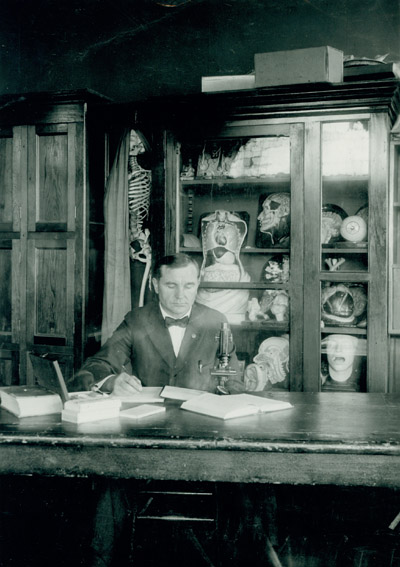
Jacob Doell, professor of biology
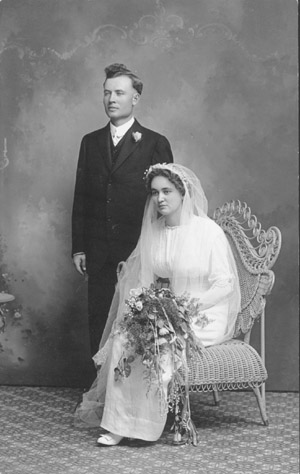
Jacob S. Schultz, played Jacob Doell (married Sara Bargen in 1914)
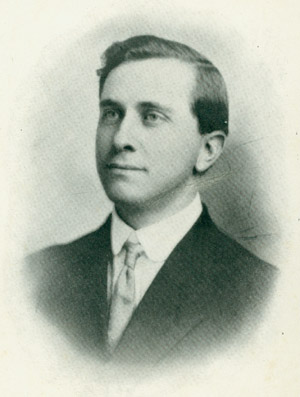
Harvey Stump, professor of English
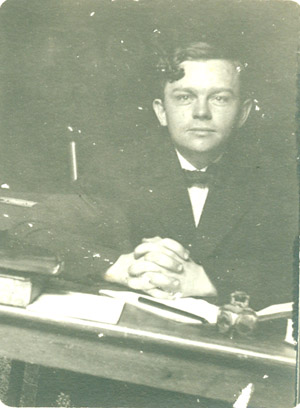
Aaron J. Regier, played Harvey Stump
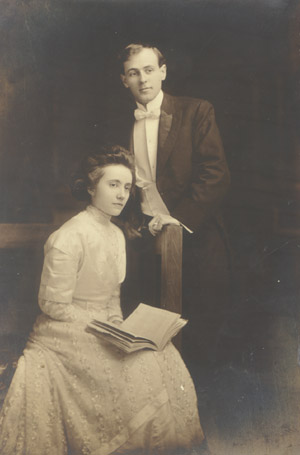
Daniel A. Hirschler, professor of music (married Helen Janzen in 1909)
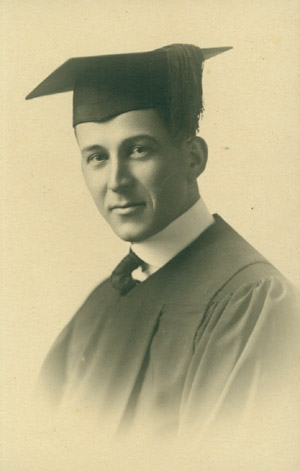
Ernest Penner, played Daniel Hirschler
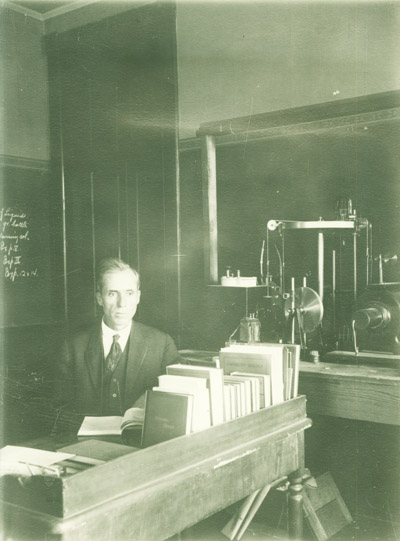
Peter J. Wedel, professor of natural sciences
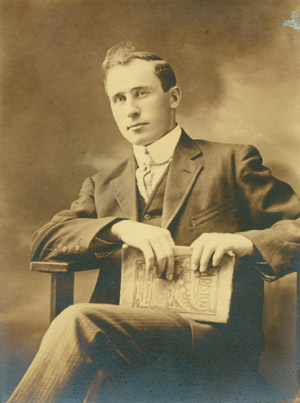
J. John Friesen, played Peter J. Wedel
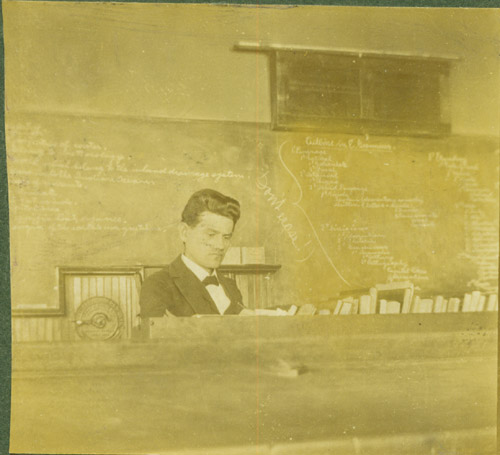
P. H. Richert, instructor of German and Bible
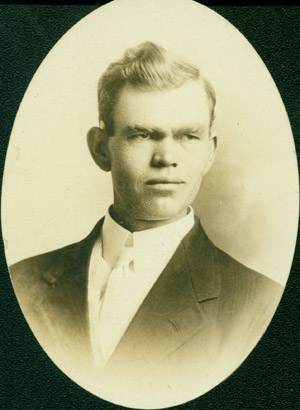
Henry D. Voth, played P. H. Richert
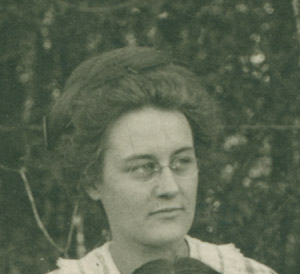
Helen Hoisington, instructor of vocal music
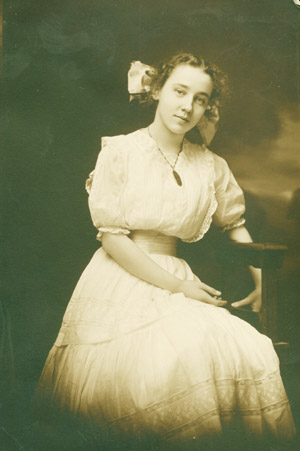
Jessie Duff, played Helen Hoisington
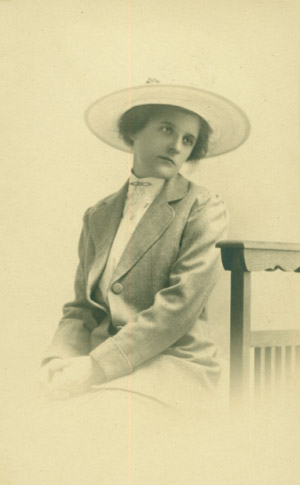
Katherine Mueller, professor of modern languages and Greek
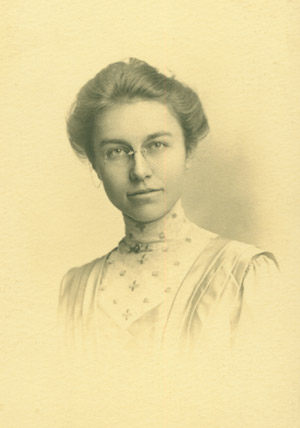
Lena Hunzicker, professor of history, librarian
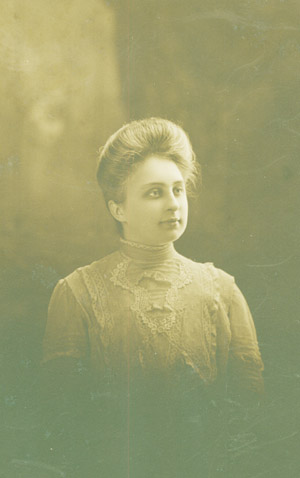
Margaret Klassen, played Lena Hunzicker
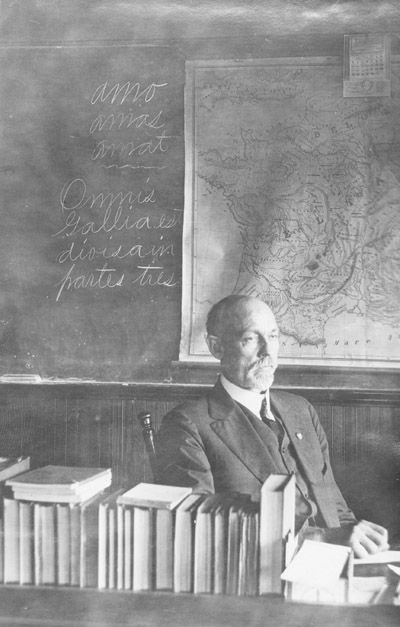
G. A. Haury, professor of Latin
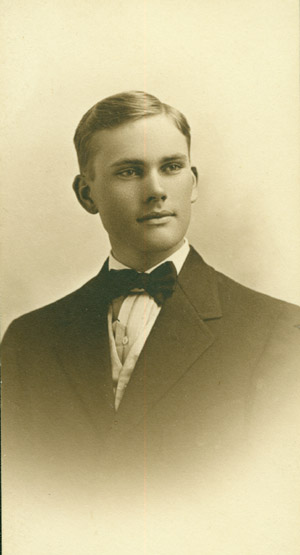
Max Smith (Schmidt), played G. A. Haury
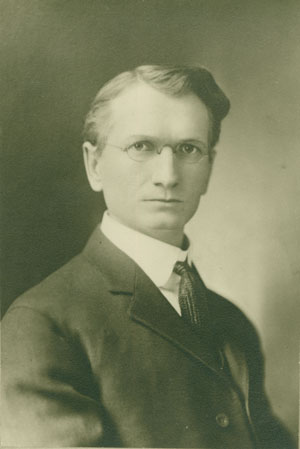
J. W. Kliewer, president of the college
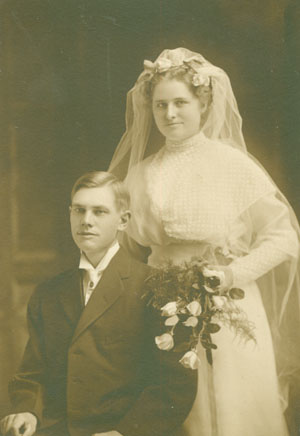
Isaac Dick, played J. W. Kliewer (married Helena Schroeder in 1912)
Several musical selections were given by Milo Neuenschwander and by a girls' octet. Then the audience was converted into a political convention and a presidential campaign inaugurated. The college band came marching in, playing a lively march, and accompanied by a torchlight procession of college girls in university middies. The electric lights were turned off and an old fashioned campaign like those of '92 and '06 was on. Jim Regier (4) announced his readiness to receive nominations for the presidency. John Dester was on his feet in a minute, mounted a stump which was there for the purpose and proceeded to nominate LaFollette of Wisconsin in a speech full of redhot colloquialisms and soft mudballs. P. T. Tschetter of South Dakota saw fit to nominate Debs of the socialists. M. S. Bachman of Moundridge gave his argument for Clark of Missouri. Loganbill of Missouri gave a happy, witty little speech for his favorite man, Pres. Taft. Jess was not yet off the stump, when David Bargen of Minnesota asked to be heard for Roosevelt. Wilson was ably represented by P. R. Schroeder of Minnesota. The excitement was intense. Then the motion was made to close the nominations. The band played several patriotic songs, and then the question of woman suffrage was brought up. The Lady Senorita Mademoiselle Zetta von Merrill was introduced to plead the cause of the suffragette, while Mrs. R. P. Schroeder (5) urged the rejection of woman's right to vote. While the battles [sic; ballots] were being distributed and marked, the band played some more. While the ballots were being counted refreshments were served in the gallery. Coffee and cookies were served to the long line of students who filed up the east stairway and came down the west. Then the results of the election were announced as follows:
Taft, 15. [8.5%]
Roosevelt, 89. [50.6%]
LaFollette, 10. [5.7%]
Wilson, 51. [30.0%]
Clark, 5. [2.8%]
Debs, 6. [3.4%]
For woman suffrage, 66. [36.6%]
Against woman suffrage, 114. [63.3%] (6)
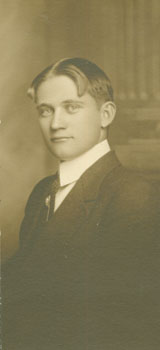
John Dester, spoke for LaFollette for president
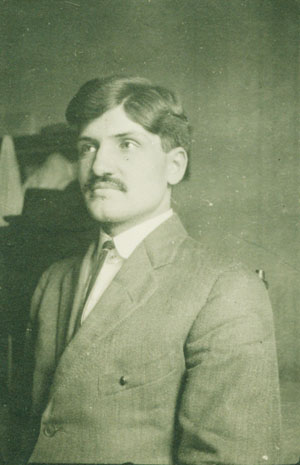
Jesse Loganbill, spoke for Taft
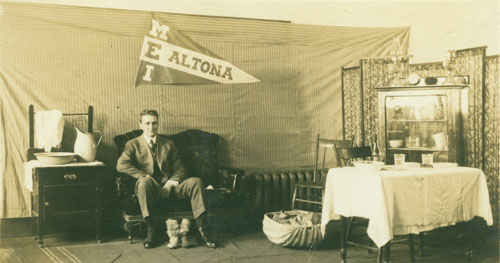
David Bargen, spoke for Roosevelt
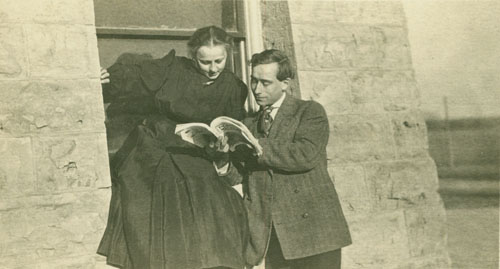
Peter R. Schroeder, spoke for Wilson (married Susanna Nickel in 1910)
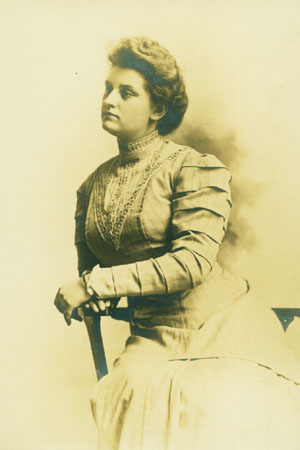
Zetta Merrell, spoke for women's suffrage
That ended the program for the evening. From beginning to end it was enjoyable without being in the least common. Every feature was managed in a new and original way. Plenty of good, clean wholesome fun, with keen wit and spicy humor, gave to each one as many laughs as he cared to have. The "faculty girls" made a great hit in being dressed in the very clothes which the real faculty most frequently wears. The band made quite a hit in the neat uniforms of white trousers and blue coats. It is the general opinion on the campus that it was the best big social event that has been given this year, and it is hoped that this will be made an annual affair.
1. Samuel Eliot Morison, Henry Steele Commager, William E. Leuchtenburg, A Concise History of the American Republic (New York: Oxford University Press, 1977), 527-530, T13.
2. Bethel College Monthly, vol. 17, no. 3, March 1912, p. 16.
3. Monatablätter, vol. 17, no. 3, März 1912, p. 7.
4. No record of a student named "Jim Regier" exists for this time period. Perhaps the writer meant John M. Regier.
5. Possibly a typo for Mrs. P. R. Schroeder (Susanna Nickel, married in 1910).
6. Note that the vote total for presidential candidates was 176, while the total on suffrage was 180.